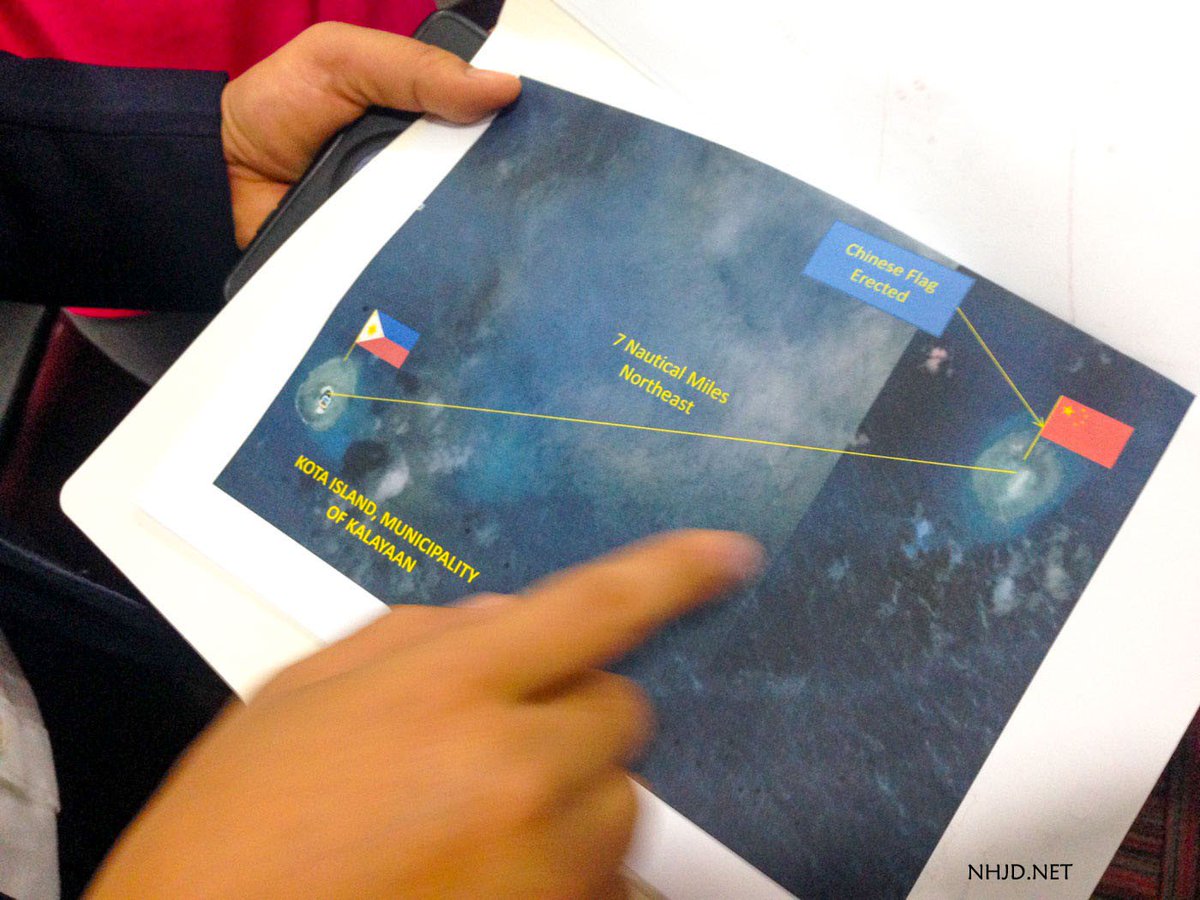Alarm bells sounded when Chinese ships recently gathered at Sandy Cay, a set of sandbars close to Philippines-occupied Thitu Island in the Spratly archipelago.
In 2012, China wrested control of Scarborough Shoal in the South China Sea from the Philippines. With the shoal—reefs, rocks, and a vast lagoon—located just 220 km (137 miles) from the Philippines’ main island Luzon, the incident heightened tensions and embarrassed Manila, which the following year opened a case in an international tribunal challenging Beijing’s territorial moves in the sea.So alarm bells went off earlier this month when
at Sandy Cay, a
close to Philippines-occupied Thitu Island in the sea’s Spratly archipelago. The island has a small civilian population and a decrepit runway the Philippines has been
.
The flotilla was seen as intimidating at the very least. “China’s ongoing maritime activity around Thitu is worrisome… if the objective of the operation is to occupy Sandy Cay, that would mean a significant escalation in tension in the South China Sea. Asia has acquired yet another flashpoint it could well do without,”
, a security analyst with the Lowy Institute for International Policy in Sydney.
A number of nations have claims to various features in the Spratlys. China, for its part, claims nearly the entire sea for itself, based on its
. The tribunal
in a nearly 500-page ruling issued in July 2016, but Beijing dismissed the legal proceedings entirely.
Satellite images
the Center for Strategic and International Studies’ Asia Maritime Transparency Initiative, based in Washington, DC, confirmed the presence of the flotilla, which included fishing, coastguard, and navy ships. The Philippines military
. It’s unclear at the time of this writing
.
The governments of both countries have
about the murky incident. Chinese foreign ministry spokesperson Hua Chunying said that people with ulterior motives
“stir up conflicts between China and the Philippines.” Philippines foreign minister Alan Peter Cayetano said the mere presence of the Chinese ships
“despite the lack of details that we give you,” saying the matter would be resolved through diplomatic channels. That followed
a day earlier from president Rodrigo Duterte.
But not everyone in the Philippines is so sure. The Chinese ships were
access to Sandy Cay, about 5 km (3.1 miles) from Thitu Island. They also blocked a vessel from the Philippine Bureau of Fisheries and Aquatic Resources, according to lawmaker Gary Alejano, who last week
of the Chinese ships. For many Filipinos the thought of a Chinese blockade dredges up bad memories. When China took over Scarborough Shoal, it blocked Philippine ships from accessing it.
Something for Subi
If China did occupy Sandy Cay (not to be confused with the nearby Sand Cay) and claim territorial waters around it, that could bolster the legal status of another nearby feature: Subi Reef, where China has built a militarized artificial island.
When the tribunal made its ruling, it went by the rules of the
(Unclos), which is at the core of modern maritime law. The tribunal designated Subi Reef a “low-tide elevation.” Such legal designations matter a great deal, as they determine what kind of rights a nation gets in the surrounding waters.
Under Unclos, a “low-tide elevation”—above water at low tide but submerged at high tide—generates no territorial sea. A territorial sea extends out 12 nautical miles (22 km or 13.9 miles) from shore, and within it a nation can better enforce its rules.
A “rock,” by contrast, does generate a territorial sea. An “island” generates an exclusive economic zone, which grants a nation sole rights to natural resources in an area extending 200 nautical miles from the shore.
In its ruling, the tribunal didn’t determine Sandy Cay’s legal designation. But Antonio Carpio, a Supreme Court senior associate justice in the Philippines,
“Sandy Cay is a Philippine land territory that is being seized (to put it mildly), or being invaded (to put it frankly), by China. If China acquires sovereignty over Sandy Cay, it can now claim Subi Reef as part of the territorial sea of Sandy Cay, legitimizing China’s claim over Subi Reef.”
Carpio said Duterte should send navy vessels to defend Sandy Cay. Were China to start a skirmish with them, he noted, the government could then invoke the mutual defense treaty with the US. Duterte, however,
the treaty in such a case: “I will not call on America. I have lost trust in the Americans.”
In a situation where Sandy Cay was designated a “rock” and China established sovereignty over it, its territorial sea would be extended by Subi Reef, noted Conor Cronin, a research associate with the Asia Maritime Transparency Initiative. In other words, Subi Reef would then generate territorial waters.
That’s something Subi Reef doesn’t have now, and didn’t have when the US conducted a nearby “
” operation challenging China’s claims in 2015.
Testing the waters
For China, occupying the sandbar would probably not matter much right now. But one day, it might.
“I suppose that in a future world where China and the Philippines agree to divide up sovereignty over the islands and rocks, China is better off with Sandy Cay if it ever had to give up its claim to Thitu Island,” said Julian Ku, a professor at the law school of Hofstra University in New York.
It’s possible that China, by occupying Sandy Cay—or simply putting a flotilla near it—could be testing the waters in terms of reactions in the Philippines.
“I think the occupation of Sandy Cay would be a useful way for China to test the Philippines (and to a lesser extent the US),” Ku added. “As a legal matter, the Philippines also claims Sandy Cay, and if they allow China to occupy it… it would be a signal the Philippines will not resist Chinese changes to the status quo.”
Another theory is that China is trying to intimidate the Philippines
, or against bolstering its presence on Thitu Island.
Either way, the flotilla has given Asia one more flashpoint to worry about.



